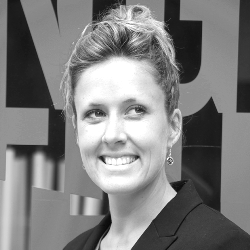Kelsey Norman
December 15, 2014 | By Public Policy Admin |
PhD Candidate, Department of Political Science, University of California, Irvine
Year of Graduation: 2010
Prior Education: University of Michigan, Bachelor of Arts
Prior Experience: Presidential Scholar, American University in Cairo
MPP Summer Internship: Policy Researcher, National Centre for First Nation Governance (NCFNG)
What influenced your decision to attend SPPG?
After returning from a year of working in Egypt I was certain I wanted to begin an MPP, but I was having difficulty choosing between a large program in a small town in America, and a small program in a large city in Canada (SPPG). After visiting SPPG and getting a better feel for Toronto, I decided that I liked the intimate feel at SPPG as well as its location in a diverse and multicultural city. I’m still very happy with my decision.
What is your favourite memory of SPPG?
My favorite experience at SPPG was organizing the Ford/SPPG conference, which is now an annual event. As a dual citizen and a graduate of the University of Michigan, the conference was a very personal undertaking. After a year and a half of planning, the conference finally came to fruition during my last semester at SPPG with the help of SPPG funding, Pam Bryant who served as an advisor, and my colleague at the Ford School. It thrills me to no end to know that the conference has continued running even after my graduation from SPPG and that it has been institutionalized as an annual event.
What is a typical day like at your current job?
During the first two years of my PhD program a typical day would have involved a mixture of prepping for the sections I was required to teach as a TA, attending my own seminars, and working on papers/articles/grant applications in my spare time. I’m now at the end of my third year in the program and I’ve advanced to candidacy so my typical days are quite different. Thanks to a doctoral fellowship I was awarded by the Social Science and Humanities Research Council (SSHRC) of Canada last spring, I’m no longer required to teach classes. This has given me a lot of flexibility and allowed me to travel for my research and for language study over the last year, and to focus most of my time on reading and writing. It’s also allowed me to get through my comprehensive exams and to defend my dissertation proposal relatively quickly. While on campus at my university, a typical day during this phase entailed writing at home or in my office, reading articles and books, attending seminars or lectures, and meeting with my advisors and the members of my committee. I’ll spend the coming year doing fieldwork – conducting interviews and surveys with migrants in Morocco, Egypt and Turkey – so every day is likely to be fairly diverse, though I hope that every morning I’ll get at least *some* writing done.
What have you done or are doing now that you believe has the most impact?
It’s always contested whether academia has impact beyond the ivory tower, but I’ve found that writing op-eds and articles for non-academic publications and being forced to make my research relevant for non-academic audiences is a good way to feel like I’m having some impact beyond my university’s campus. It also forces me to practice writing in a non-academic style, which is something that’s easy to lose if you only spend time writing papers for academic journals. Also, it makes me question whether the research topics I’m working on are interesting only because of their theoretical implications or whether they have real-world applicability. If they’re lacking in the later, then I have to reassess what I’m doing.
What are your favorite Toronto activities, places or restaurants?
I haven’t lived in Toronto in three years, but when I did live in the city my favorite activities were all bike-related. I think everyone should try the Tour de Dufflet at least once, and any of the other Bike Month activities offer a great sense of community and a good way to explore the city (plus they’re almost all free).
What aspects of your MPP program did you most appreciate?
Two things. First, the statistics and economics sequence, because it gave me a strong enough foundation to then take other courses in statistics both at U of T and at my current university. And even though I’ve moved to primarily qualitative work given the nature of the countries I’m studying for my PhD, I still appreciate feeling adequately literate when reading studies that use quantitative methods. Second, I appreciated the flexibility and personal nature of the program. I ended up receiving a SSHRC grant during the second year of the MPP degree that required I complete a substantial research project. The administration and faculty at SPPG worked with me to design my course schedule around this requirement, and I was able to complete a paper that I presented at several conferences in Toronto and that’s helped shape the direction of my PhD research.
What book are you reading now?
I end up reading a lot of academic books, which at the moment includes two books on methodology in preparation for a workshop I’m attending in three weeks (‘A Tale of Two Cultures: Qualitative and Quantitative Research in the Social Sciences’ and ‘Finding Pathways: Mixed-Method Research for Studying Causal Mechanisms’). But I also try and always read a fiction book alongside research-related things, which right now is ‘The Goldfinch’ by Donna Tartt. I’m only about 150 pages in, but so far it seems to be great summer reading.





